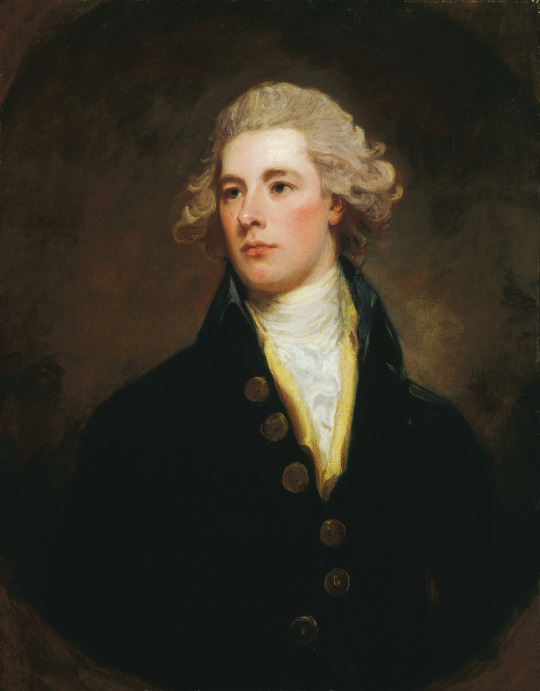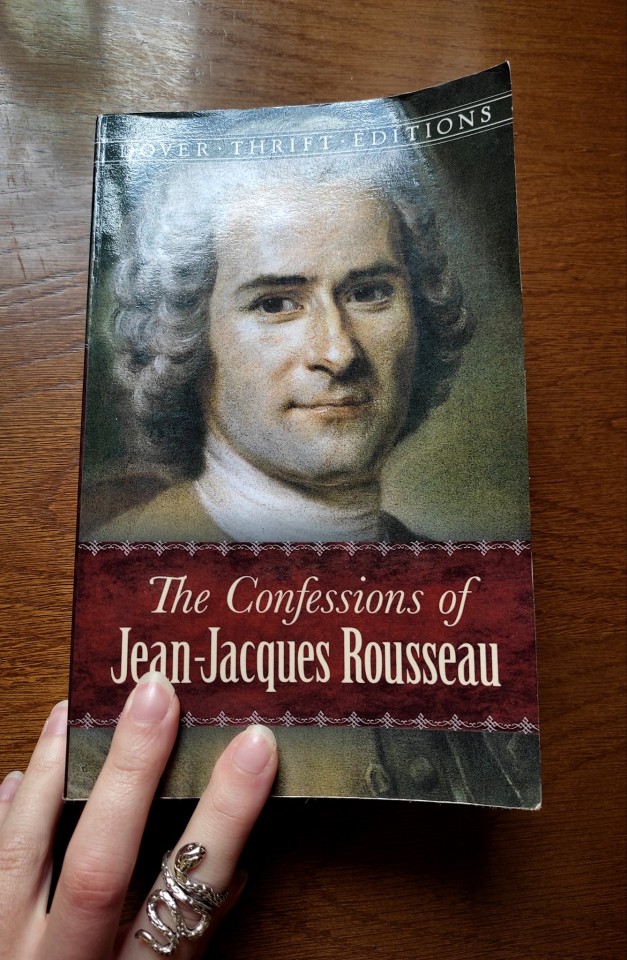#English Revolution
Explore tagged Tumblr posts
Text
Can’t sleep, thinking about how Cromwell didn’t kill enough loyalist and now I have to hear about yet another fucking King Charles and his weird ass German family
9 notes
·
View notes
Text
After years of Greek, Roman and Byzantine histories, both in Podcast and Books, I took a step forward in time to Mike Duncan’s Revolutions podcast.
After 6 months of listening to the English, American, French, Spanish ReConquista of South America, Haitian and Mexican Revolutions, I have popped out bleary eyed and squinting into the 20th century’s 1920s.
I still have the Russian Revolution to go (and a few odd Cold War books) but I find myself missing the Ancient World.
#podcasts#mike duncan#revolutions podcast#mexican revolution#history#ancient history#rome#the french revolution was wild#i’ll be giving that another listen#english revolution#oliver cromwell#haitian revolution#voodoo#colombian revolution#simon bolivar#russian revolution#trade unionist#join a union#the worker#even in the 21st century#gig workers#the working class#there is no war other than class war#the dignity of basic human rights
3 notes
·
View notes
Text
"In this episode we discuss Christopher Hill's The World Turned Upside Down: Radical Ideas During the English Revolution, originally published in 1972.
This book is widely regarded as a seminal work of history from below, which popularised the concept of the English Revolution and helped to establish the ideas of the Levellers, Diggers, Seekers and Ranters as a key part of the radical tradition in England and beyond."
https://open.spotify.com/episode/28Kxvtu9tqe9xUSNKbNo5P
#Christopher Hill#spotify#The World Turned Upside Down: Radical Ideas During the English Revolution#english revolution#class war#1972#history#books#book#Levellers#Diggers#Seekers#Ranters#england#ausgov#politas#auspol#tasgov#taspol#australia#fuck neoliberals#neoliberal capitalism#anthony albanese#albanese government#antichurch#anti religion#anti capitalism#antifascist#antiauthoritarian#anti imperialism
0 notes
Text
youtube
#uk history#history#royal history#videos#charles I#english revolution#tom nichols#oliver cromwell#charles II#english history#17th century
0 notes
Text
“By 1900 child mortality was already declining—not because of anything the medical profession had accomplished, but because of general improvements in sanitation and nutrition. Meanwhile the birthrate had dropped to an average of about three and a half; women expected each baby to live and were already taking measures to prevent more than the desired number of pregnancies. From a strictly biological standpoint then, children were beginning to come into their own.
Economic changes too pushed the child into sudden prominence at the turn of the century. Those fabled, pre-industrial children who were "seen, but not heard," were, most of the time, hard at work—weeding, sewing, fetching water and kindling, feeding the animals, watching the baby. Today, a four-year-old who can tie his or her own shoes is impressive. In colonial times, four-year-old girls knitted stockings and mittens and could produce intricate embroidery; at age six they spun wool. A good, industrious little girl was called "Mrs." instead of "Miss" in appreciation of her contribution to the family economy: she was not, strictly speaking, a child.
But when production left the houschold, sweeping away the dozens of chores which had filled the child's day, childhood began to stand out as a distinct and fascinating phase of life. It was as if the late Victorian imagination, still unsettled by Darwin's apes, suddenly looked down and discovered, right at knee-level, the evolutionary missing link. Here was the pristine innocence which adult men romanticized, and of course, here, in miniature, was the future which today's adult men could not hope to enter in person. In the child lay the key to the control of human evolution. Its habits, its pastimes, its companions were no longer trivial matters, but issues of gravest importance to the entire species.
This sudden fascination with the child came at a time in American history when child abuse—in the most literal and physical sense—was becoming an institutional feature of the expanding industrial economy. Near the turn of the century, an estimated 2,250,000 American children under fifteen were full-time laborers—in coal mines, glass factories, textile mills, canning factories, in the cigar industry, and in the homes of the wealthy—in short, wherever cheap and docile labor could be used. There can be no comparison between the conditions of work for a farm child (who was also in most cases a beloved family member) and the conditions of work for industrial child laborers. Four-year-olds worked sixteen-hour days sorting beads or rolling cigars in New York City tenements; five-year-old girls worked the night shift in southern cotton mills.
So long as enough girls can be kept working, and only a few of them faint, the mills are kept going; but when faintings are so many and so frequent that it does not pay to keep going, the mills are closed.
These children grew up hunched and rickety, sometimes blinded by fine work or the intense heat of furnaces, lungs ruined by coal dust or cotton dust—when they grew up at all. Not for them the "century of the child," or childhood in any form:
The golf links lie so near the mill
That almost every day
The laboring children can look out
And see the men at play.
Child labor had its ideological defenders: educational philosophers who extolled the lessons of factory discipline, the Catholic hierarchy which argued that it was a father's patriarchal right to dispose of his children's labor, and of course the mill owners themselves. But for the reform-oriented, middle-class citizen the spectacle of machines tearing at baby flesh, of factories sucking in files of hunched-over children each morning, inspired not only public indignation, but a kind of personal horror. Here was the ultimate "rationalization" contained in the logic of the Market: all members of the family reduced alike to wage slavery, all human relations, including the most ancient and intimate, dissolved in the cash nexus. Who could refute the logic of it? There was no rationale (within the terms of the Market) for supporting idle, dependent children. There were no ties of economic self-interest to preserve the family. Child labor represented a long step toward that ultimate "anti-utopia" which always seemed to be germinating in capitalist development: a world engorged by the Market, a world without love.”
-Barbara Ehrenreich and Deirdre English, For Her Own Good: 150 Years of the Experts’ Advice to Women
536 notes
·
View notes
Text
The UK had the chance to be the funniest country on earth if after Louis xvi was executed they were just like “so happy you finally killed that usurper! Obviously king George iii is the rightful king of France, descended from Edward iii, so we’re gonna be installing him asap”
#yall called yourselves the rightful kings of France 5evuh and you had your MOMENT! you had it!#french revolution#Louis xvi#this is a shitpost if any nerd goes ‘acktually the English gave up their claim in year -123479 bc I will pummel you.#go hard with your monarchist bullshit or go HOME
159 notes
·
View notes
Text

• Angel Cloud •
#artists on tumblr#own characters#oc art#borzoi#dog#canine#anthro#it seems this is the first full-fledged post with my character. I've drawn her before#but I haven't given any information about her.#So let's get to know each other.. This is Angel Cloud.#You probably already guessed from her clothes that she doesn't live with us at the same time. This is the 19th century#France.#Maria Theresa's former maid of honor leaves her native country after the events of the 1830 July Revolution (fr. Trois Glorieuses).#After leaving her native harbor#she and her brother flee to England.#later I will introduce you to her twin brother Nicholas#the English Duke of Linor#the beautiful maid of the Duke of Devonshire#and a young teacher at Cambridge University.Just give me some time.
72 notes
·
View notes
Text

William Pitt the Younger by George Romney
#william pitt#william pitt the younger#art#portrait#george romney#england#great britain#prime minister#english#british#history#europe#french revolutionary wars#napoleonic wars#french revolution#georgian era#georgian
76 notes
·
View notes
Text

Saw this in an antique book shop today and simply couldn't resist
Actual cost: 150 CZK (around 6 $)
Cost to my mental well-being: incalculable
#he discloses his - um - fondness of the English vice on page 14. Where he talks exclusively about his childhood. Welp.#so far I don't know if I want to hug him or slap him. It often changes in the span of two sentences.#haven't thrown it across the room like Camille yet though!#jean jacques rousseau#rousseau#frev#french revolution#frevblr#Lin reads#philosophy#philosophy memes#18th century#1700s#tw: JJ
54 notes
·
View notes
Text






DEXTER FLETCHER as NED DOBB REVOLUTION (1985) - dir. HUGH HUDSON
#SHOUTOUTS TO BATTIE!!! she inspired me to fletcherpost on this lovely friday...#the internet did not want me to find this film.#i had to get on this sketchy site and watch the italian dub with english subs. this is a british english language film#i learned from letterboxd poor pacino had pneumonia for two months during filming#i particularly like the griminess they got dexter's hair to be#plus scenes where i swear pacino had a little rat tail tiny ponytail moment going on#spoiler alert mr fletcher doesnt show up until the second act of the film because he is the “older” version of a character#fletcherposting#dexter fletcher#revolution 1985
30 notes
·
View notes
Text

【🐇Asahi🐇】
Day 12 of @magitober, Folklore of Zero!
Asahi stole my heart during Ashen Revolution :,)
Twitter post.
#hey you go watch Ashen Revolution on the Magia Union Translations youtube right now#I helped get that event up and viewable in English#(thanks to the numerous people involved who helped make it happen!!)#seren's art#magitober#magitober2024#madomagi#magia record#asahi miura
44 notes
·
View notes
Text
One of the great tragedies of the English Civil War is that the so-called Long Parliament of 1640-1660 shut down theatre in London in 1642. The Revolution had accomplished much but its social policy was so tragically backwards and regressive. I find it hard to support any revolution that

#history#english civil war#english revolution#revolution#kinda#comrade does politics#socialism#communism
9 notes
·
View notes
Text

the stillborn, arwa salih
#the stillborn#rereading. english translation this time#i'm endlessly bitter this mirrors what i (as part of the “newer” generation) feel about jan25#it was aborted before i was old enough to realize or partake and what's left for myself and others my age is cruel despair#we never even got to feel the ambition#it hurts so bad that nothing has changed#it's been half a century and nothing has changed#like it is so ironic how much the 70's student movement mirrors the 2011 revolution#i don't understand how people can just look at it as a mistake how we can all despair like this#there's lessons to be learned from it. many. and we haven't even acknowledged a single one#25jan#egypt
48 notes
·
View notes
Text
Re: Dandyism
The inherent problem with the “foncy poncy oppressive English narrative” that is definitely historical revisionism.
1) anyone who was anyone in the 18th century (Hamilton, Tallmadge, Major André, Washington’s other aides to camp and the British generals) would’ve both presented as a “dandy” it was a symbol of status and being cultured and/or well read.
2) imperialism cuts both ways and both sides brutalized and lied to black and indigenous folks. Don’t get me, a brown person, started on the British Raj. (Reading 1) (reading 2)
youtube
youtube
youtube
youtube
Prompted by this post also I highly recommend The Vampire Lestat, Tallmadge’s memoir, the scarlet pimpernel, and dangerous liaisons.
#meerathehistorian#dandy#dandyism#quaintrelle#quaintrelleism#history#long post tw#fashion history#18th century#queer history#18th century history#european history#american history#english history#history of fashion#bisexual#lgbtq+#queer#american revolution#alexander hamilton#ben tallmadge#benjamin tallmadge#lord byron#regency#historical fashion#historical references#turn washington's spies#turn: washington's spies#amc turn#turn amc
200 notes
·
View notes
Text
bullshitting my way through this thesis

#english professor is gonna know i'm a commie 😭😭#essentially my thesis is “the american dream is unattainable in the current system without revolution”#or something idfk
47 notes
·
View notes
Text
I love studying about the French Revolution, but the way I try to study the French language, I am slowly losing my mind like- RAAAAAAGGGHHH 👹🥲😭
#frev#french revolution#the pain of being a filipino english-speaking historian#fyi: i have a french name 🫠
16 notes
·
View notes